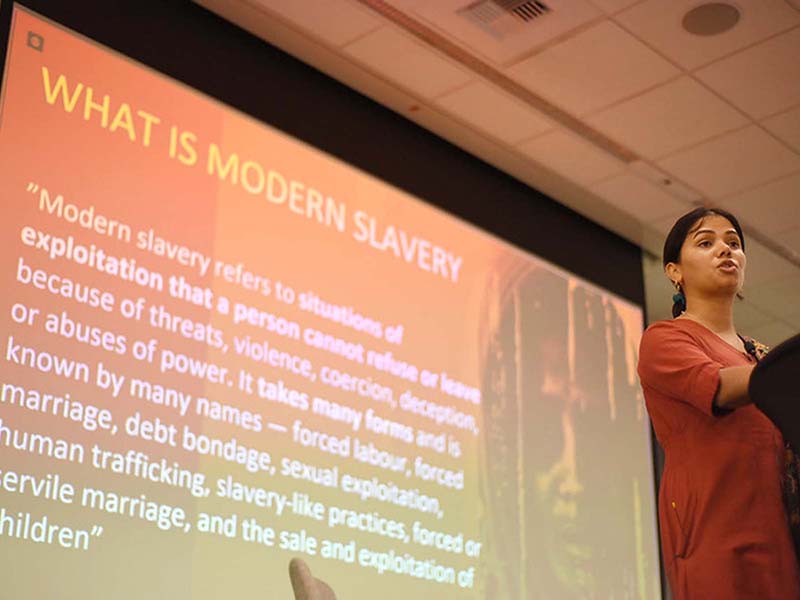
Authors
-
Joanna Lovatt
Former Manager, BSR
-

Senior Advisor, BSR
-

Managing Director, Human Rights and Inclusive Business, BSR
-
Céline da Graça Pires
Former Manager, BSR
This blog forms part of a series on conducting enhanced human rights due diligence in conflict-affected and high-risk areas.
The jury may still be out on whether freedom from corruption should be a human right, but in the business and human rights community, there is increasing momentum for articulating the relationship between corrupt business practices and their associated negative human rights impacts. These impacts are amplified in likelihood and severity when they happen in conflict-affected and high-risk areas, such as Myanmar, Colombia, or Palestine. Should businesses fail to conduct conflict-sensitive human rights due diligence and integrate their anti-corruption and human rights efforts, both upstream and downstream of their business operations, they may find themselves directly or indirectly linked to and complicit in gross human rights abuses that are conducted by a third party. These include human trafficking, child labor, and even crimes under international humanitarian and criminal law like genocide and crimes against humanity.
In situations like these, traditional human rights due diligence is often insufficient. BSR recommends enhanced human rights due diligence that is both conflict-sensitive and that integrates corruption risk. Tying these two narratives more closely together will reveal far more insight about the nexus of power relationships that companies need to navigate to do business with integrity.
Should businesses fail to conduct conflict-sensitive human rights due diligence and integrate their anti-corruption and human rights efforts, both up- and down-stream of their business operations, they may find themselves directly or indirectly linked to and complicit in gross human rights abuses that are conducted by a third party.
Corruption can lead to negative impacts on human rights; as such, part of business’s responsibility to address human rights impacts involves actively combating corruption. In some cases, the link between corruption and negative human rights impacts is clear: corrupt practices and illegal building extensions were contributing factors in the tragic collapse of Rana Plaza in Bangladesh in 2013, which led to more than 1,100 deaths.
In other cases, the link between corruption and human rights is more indirect, but the consequences are no less severe. Businesses may find themselves engaging with partners, suppliers, customers, or end-users who deal with military-associated entities or politically exposed persons. Sometimes, a national government may be the perpetrator of gross human rights abuses. Many businesses have little choice but to enter partnerships with government bodies, particularly in industries such as oil, mining, telecommunications, and infrastructure. This can leave them directly linked to human rights impacts driven by the government in question.
One example of exposure to human rights risks as a result of corruption is through corporate philanthropy. In some cases, there is a fine line between philanthropic donations and facilitation payments for “getting things done” and securing permission to operate from authorities in challenging legal environments without effective rule of law. These donations could be provided by the in-country business unit, by business partners, by landowners from which your company leases land or the land management business. In these situations, the link between corruption and complicity becomes clear when the donations are directly or indirectly funding military operations or authoritarian regimes linked to gross human rights abuses. This link was made explicit by the UN Fact-Finding Mission to Myanmar in an August 2019 report.
Another example of corruption-related human rights risks can be found deep within the supply chain: the OECD recently published a report on the role that corruption plays in amplifying and perpetuating human rights abuses associated with armed conflict in copper and cobalt supply chains in the Democratic Republic of the Congo. Related activities include illegal payments to government officials and business relationships with entities that are partly or wholly owned by criminal or military enterprises. These suppliers are often several times removed from the multinational company that is sourcing the raw materials, which makes building leverage and oversight challenging. In this case—and as BSR wrote earlier this year—collective action could incentivize suppliers throughout the supply chain to support an anti-corruption environment.
BSR recommends enhanced human rights due diligence that is both conflict-sensitive and that integrates corruption risk. Tying these two narratives more closely together will reveal far more insight about the nexus of power relationships that companies need to navigate to do business with integrity.
At BSR, we help companies to integrate corruption risk into their human rights due diligence. Our enhanced human rights due diligence toolkit was developed for use in conflict-affected and high-risk areas. This toolkit includes support for integrating the compliance and corporate responsibility/human rights teams to coordinate on assessing the risk of business partnerships in high-risk contexts, as well as recommendations for enhanced know-your-customer, beneficial ownership, and political/military-associated entity background checks.
If you would like more information on how BSR can support you to address conflict- and corruption-related human rights risks in your business value chain, please don’t hesitate to get in touch with our team.
BSR’s latest sustainability insights and events straight to your inbox.
Topics
Let’s talk about how BSR can help you to transform your business and achieve your sustainability goals.







